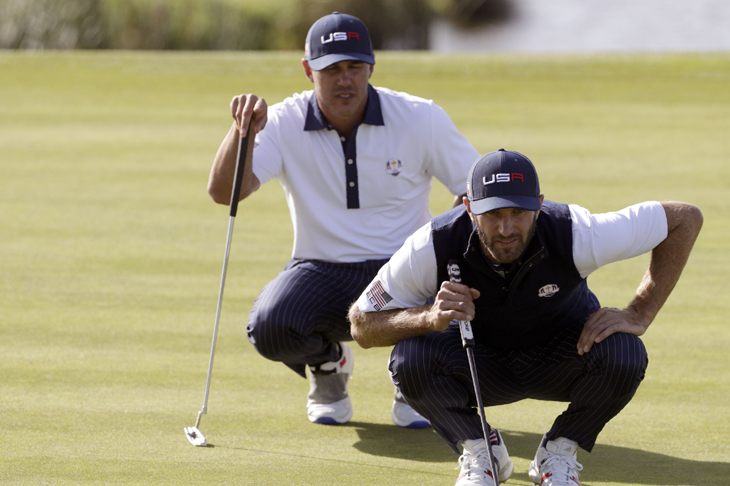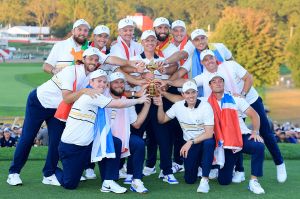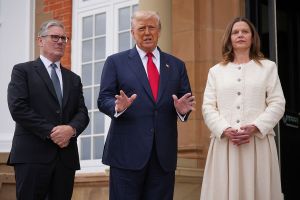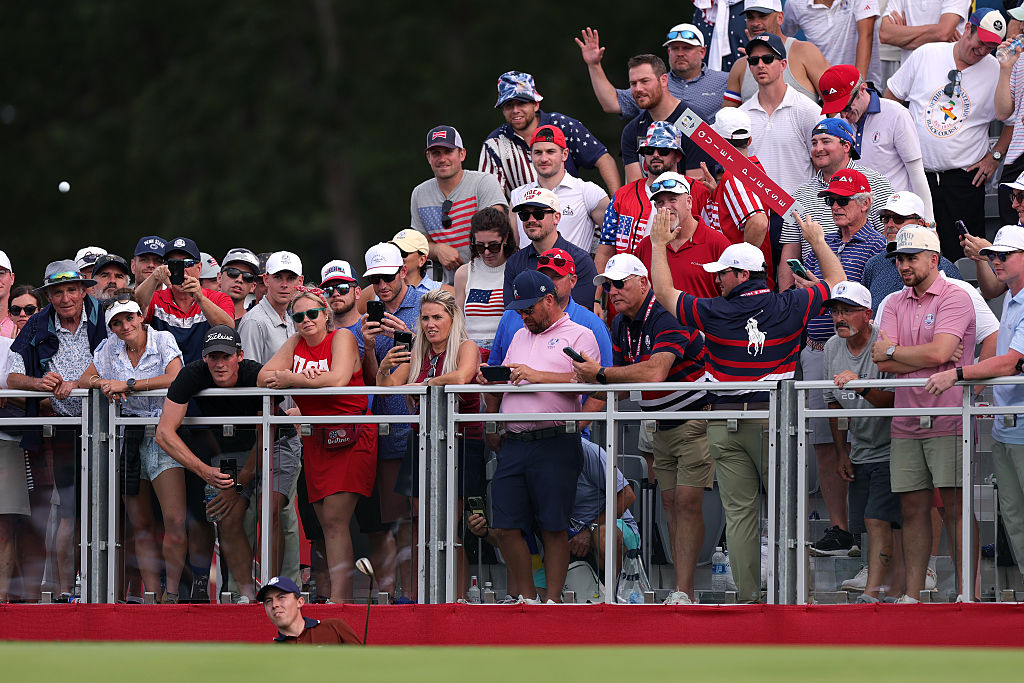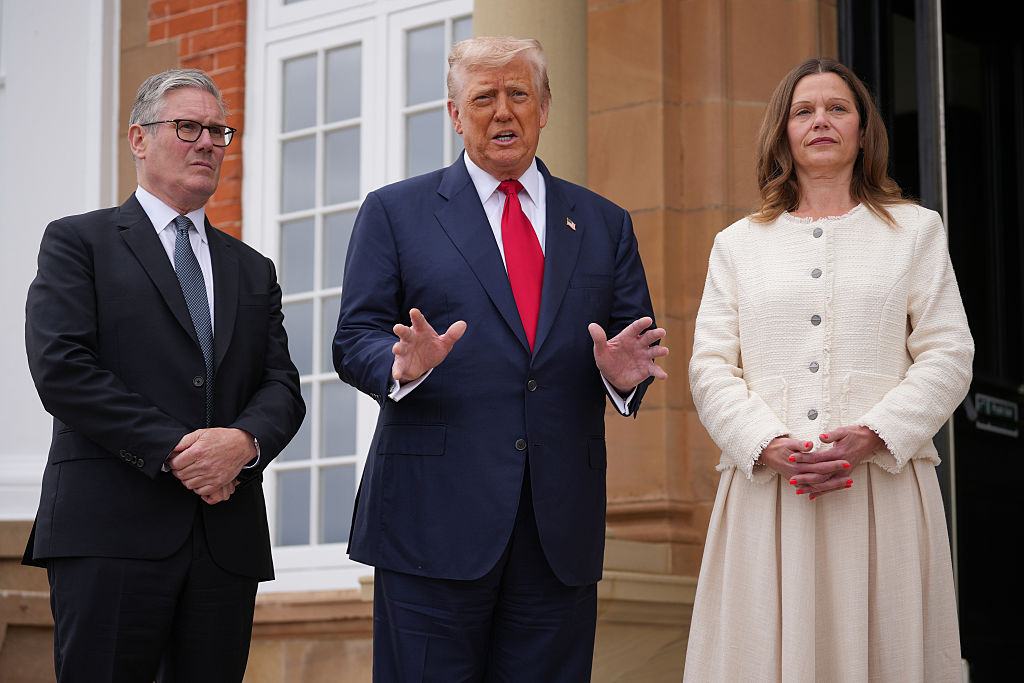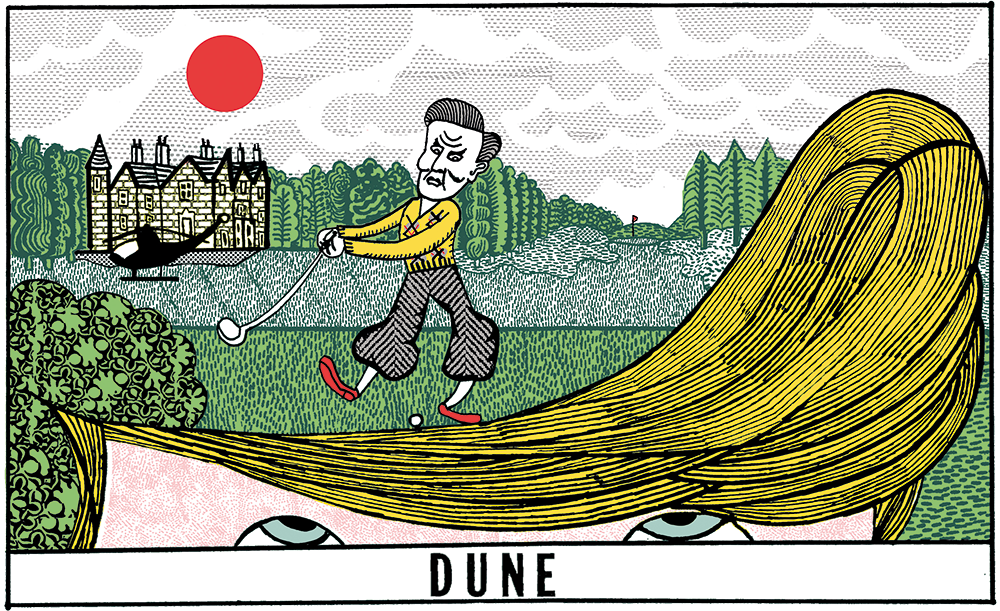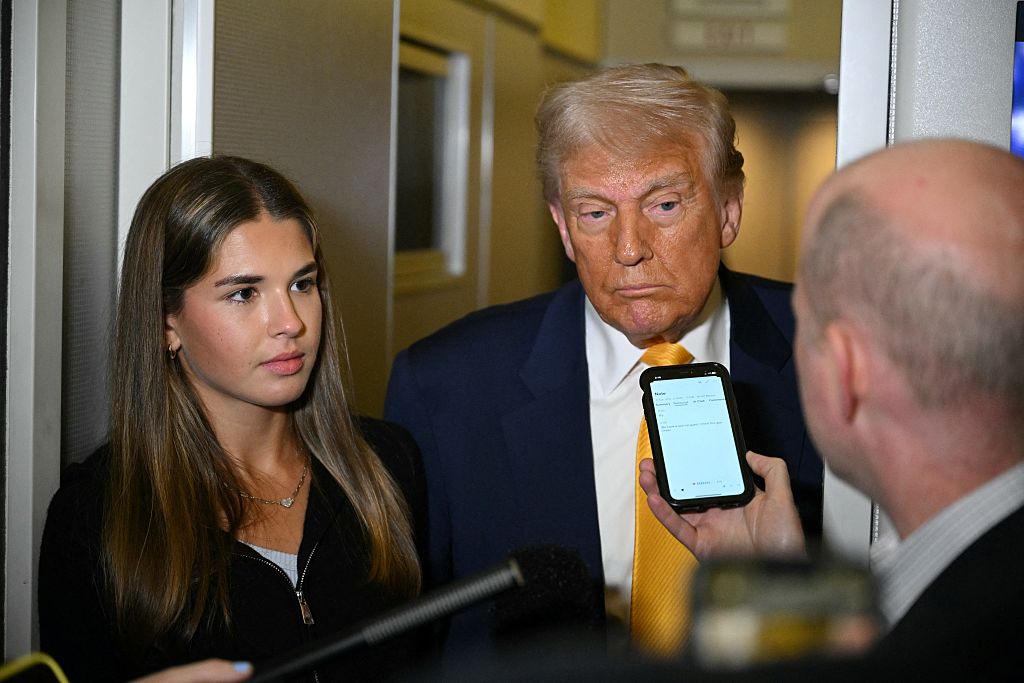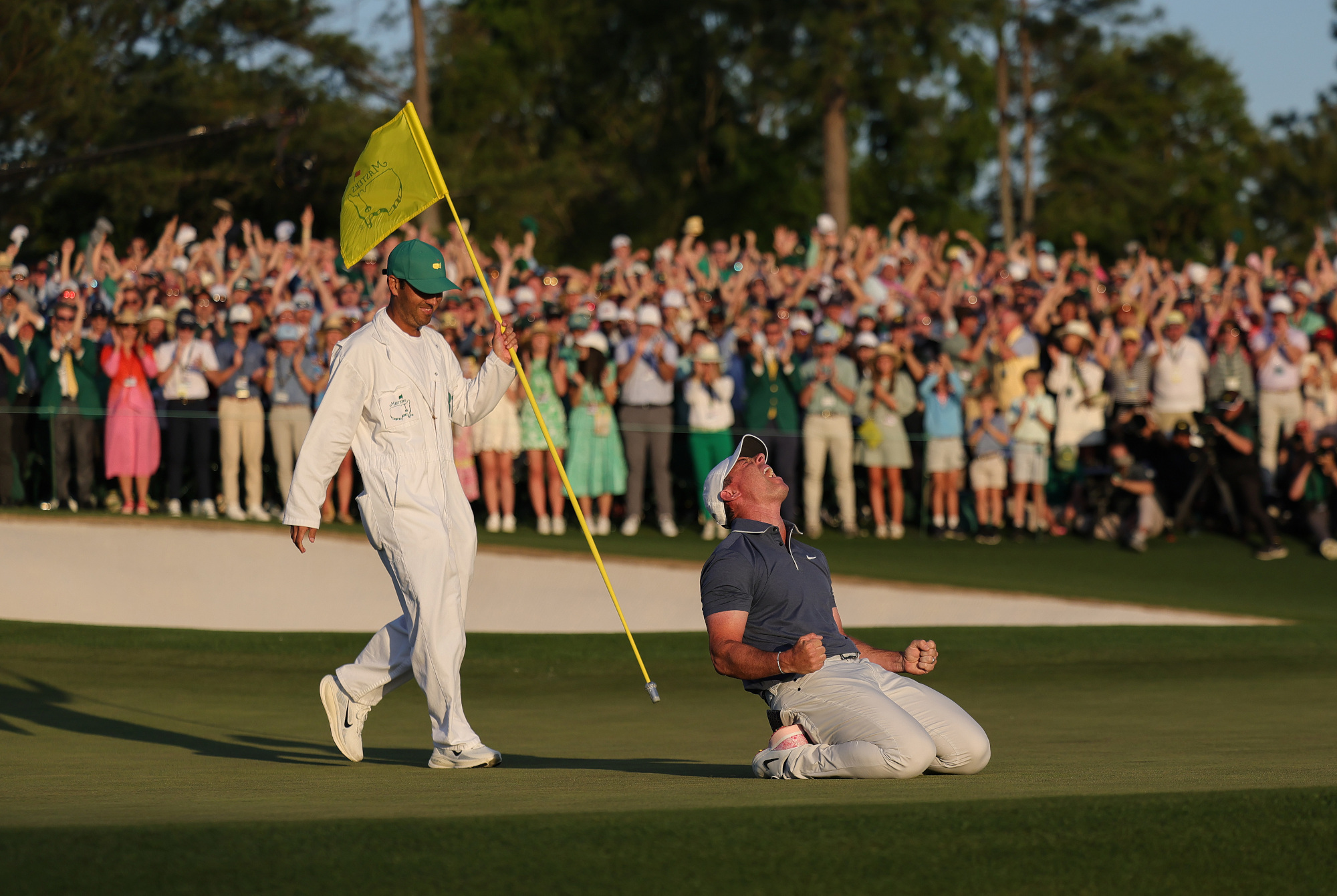For a nation which gave us a brilliant TV show called Band of Brothers, the Americans find it hard to bond like brothers, or even second cousins. Gratifyingly, they seem to loathe each other. The best part of Europe winning the Ryder Cup, especially with a thrashing, is always the American meltdown afterwards.
Four years ago in Scotland, Phil Mickelson gave his captain, the much-loved Tom Watson, a full barrel–load post-match. ‘We have strayed from a winning formula,’ was the gist. Later, when asked about Mickelson’s disloyalty, Watson replied with customary courtesy: ‘He has a difference of opinion. That’s OK. My management philosophy is different than his. It takes 12 players to win…’
In Paris, Mickelson played so dismally he had the grace to shut up. It was left to Masters champion Patrick Reed to take up the mantle. He said Jordan Spieth didn’t want to play with him and slagged off Jim Furyk’s decision to drop him for two sessions. ‘I don’t have any issue with Jordan,’ said Reed, who doesn’t seem to be universally loved, even in his own family. ‘I don’t care if I like the person I’m paired with, or if the person likes me, as long as it works.’ As for Furyk’s tactics: ‘For somebody as successful in the Ryder Cup as I am, I don’t think it’s smart to sit me out twice.’ Ouch. Meanwhile, Dustin Johnson and Brooks Koepka, the two top-ranked US players and one-time best buds, were at each others’ throats in the European team room. All in all, it couldn’t have gone better.
Why are the Americans so damn cocky, despite a poor away record? Only Justin Thomas, easily America’s leading points scorer, had bothered to come and check out the course at the French Open. US culture is individualist and doesn’t translate well to team golf; certainly not to foursomes where you depend on your partner playing for the team. The US used to be better at the singles No more though: Europe’s golfers now use a massive dose of team spirit to take them apart, and make sure Thomas Bjorn has a tattoo of the score in a place only his partner will see.
And then there was the crowd: raucous, rowdy, fiercely partisan — a sports crowd, not a golf crowd. Shrieking, whooping, chanting, fancy dressing, and of course drinking like there’s no tomorrow. American crowds know how to behave badly, so they can’t complain. Maybe it was all a bit much by the standards of the Royal and Ancient, but too bad. The crowd was well up on the 240,000 at Gleneagles, and remarkably decorous, all things considered. It’s clear that match-play golf is far more exciting than stroke-play, and there ought to be much more of it. There’s a tedious lack of context to stroke play until the denouement approaches towards the end of the fourth day. Mark you, the British Masters is at Walton Heath early next month: Tommy Fleetwood and Francesco Molinari are both scheduled to play. What price those two Ryder Cup warriors going out in the last pairing on October 14? You would pay a lot of money to see it.
This article was originally published in The Spectator magazine.



